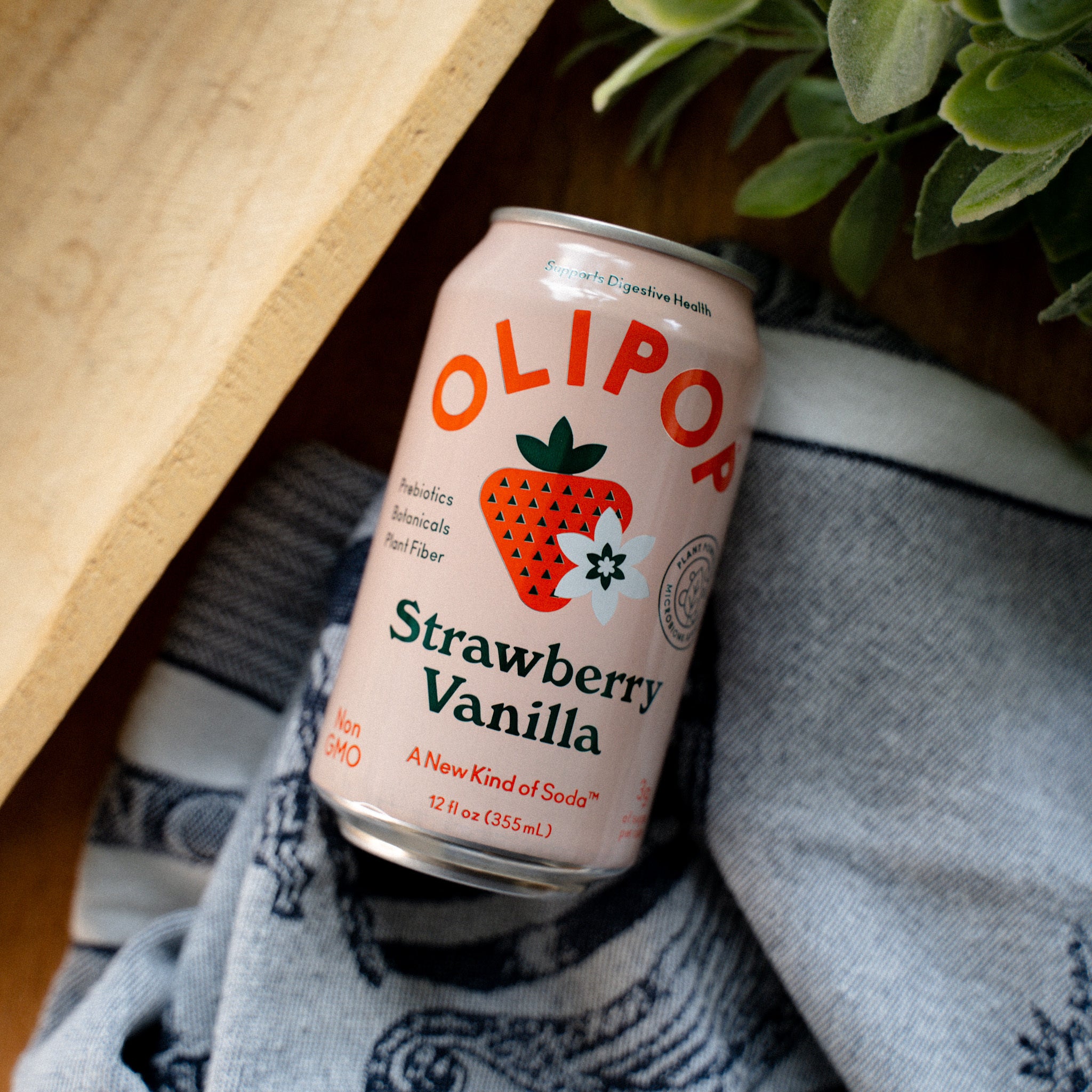When you think about gut health drinks, Olipop might come to mind. But lately, the brand's been making headlines for all the wrong reasons. If you've been following the news, you've probably heard about the Olipop lawsuit that's got everyone talking. What started as a promising product aimed at improving digestive health has now turned into a legal battle that could change how we view these so-called "healthy" beverages. But what exactly happened? Let’s dive in and find out.
Picture this: You're scrolling through social media, and an ad pops up for a drink that claims to help with digestion, reduce bloating, and even curb sugar cravings. Sounds too good to be true, right? Well, that's exactly what Olipop promised when they launched their line of gut-friendly sodas. But now, some consumers are saying the company overstated the benefits, leading to a class-action lawsuit that could shake up the wellness industry.
Before we get into the nitty-gritty, let's clear something up: This isn't just about Olipop. It's about trust, transparency, and whether companies can really deliver on their big promises. In a world where wellness is big business, it's important to know what you're putting in your body. So, buckle up because we're about to break down the Olipop lawsuit and what it means for you.
- Vega Movies Your Ultimate Streaming Destination For Entertainment
- Hd Hub 4u Your Ultimate Destination For Highquality Entertainment
What is Olipop?
Let’s start with the basics. Olipop is a plant-based soda designed to promote gut health. The company claims its beverages are made with prebiotics, fiber, and natural ingredients that help support digestion and overall wellness. Unlike regular sodas loaded with sugar, Olipop uses alternative sweeteners like erythritol and stevia, making it a popular choice for health-conscious consumers.
But here's the kicker: Olipop didn't just stop at being a healthier soda alternative. They positioned themselves as a gut health powerhouse, claiming their drinks could do everything from reducing bloating to supporting weight management. And let’s be real, who wouldn’t want a soda that actually helps you feel better? That’s why so many people jumped on the Olipop bandwagon.
The Olipop Lawsuit Explained
Now, here’s where things get interesting. In early 2023, a group of consumers filed a class-action lawsuit against Olipop, accusing the company of false advertising. The lawsuit claims that Olipop exaggerated the health benefits of their products, misleading consumers into believing their drinks were more effective than they actually are.
- Allmovieshub Your Ultimate Destination For Movie Enthusiasts
- Vegamovies New The Ultimate Guide To Your Movie Streaming Needs
According to the plaintiffs, Olipop’s marketing materials suggested that their beverages could significantly improve gut health, reduce bloating, and even aid in weight loss. However, the lawsuit argues that there isn’t enough scientific evidence to back up these claims. This has raised questions about the credibility of Olipop’s marketing strategies and whether they prioritized profit over transparency.
Why Should You Care About the Olipop Lawsuit?
Here’s the thing: If you’ve ever bought Olipop because of their health claims, this lawsuit could affect you. It’s not just about one company—it’s about the broader wellness industry and how brands market their products. In a market flooded with "miracle" supplements and drinks, it’s crucial to understand what’s real and what’s hype.
For many consumers, Olipop wasn’t just a soda; it was a lifestyle choice. People trusted the brand to deliver on its promises, and now they feel betrayed. This lawsuit highlights the importance of doing your own research and not blindly trusting marketing claims, no matter how convincing they sound.
Key Accusations in the Lawsuit
So, what exactly are the plaintiffs accusing Olipop of? Here are the main points:
- False Advertising: Plaintiffs argue that Olipop’s claims about gut health and weight management are misleading and lack scientific backing.
- Deceptive Marketing: The lawsuit claims that Olipop used buzzwords like "prebiotic" and "digestive health" to appeal to health-conscious consumers without providing substantial evidence to support these terms.
- Overstating Benefits: Critics say the company exaggerated the effects of their products, creating unrealistic expectations for consumers.
These accusations have sparked a larger conversation about transparency in the wellness industry. If Olipop is found guilty, it could set a precedent for how other companies market their health products.
Is Olipop Really Bad for You?
Now, let’s address the elephant in the room: Is Olipop actually harmful? The short answer is no. While the lawsuit focuses on false advertising, there’s no evidence to suggest that Olipop is dangerous or unhealthy. In fact, compared to traditional sodas, Olipop is a better option because it uses natural sweeteners and avoids added sugars.
However, the issue lies in the expectations set by the company. If you bought Olipop expecting it to magically solve your digestive issues, you might be disappointed. But if you see it as a tasty, low-sugar alternative to regular soda, it’s still a decent choice.
What the Experts Say
Dr. Jane Smith, a leading gut health specialist, weighed in on the controversy. "While Olipop does contain prebiotics and fiber, which can support digestion, the extent of their benefits depends on individual factors like diet and lifestyle," she explained. "The problem arises when companies make blanket claims that apply to everyone, without considering these nuances."
Another expert, nutritionist Mark Johnson, added, "Consumers need to be cautious when evaluating health claims. Just because a product has certain ingredients doesn’t mean it will deliver the promised results."
The Science Behind Prebiotics and Gut Health
Let’s take a step back and talk about the science. Prebiotics are non-digestible fibers that feed the good bacteria in your gut, promoting a healthy microbiome. While they’re undoubtedly beneficial, their effects vary from person to person. Factors like age, diet, and overall health can influence how your body responds to prebiotics.
Olipop’s drinks do contain prebiotic fibers, but the lawsuit questions whether these ingredients alone can deliver the dramatic results the company claims. It’s a reminder that science isn’t one-size-fits-all, and what works for one person might not work for another.
How Reliable Are Prebiotic Claims?
Research shows that prebiotics can improve gut health, but the evidence isn’t always clear-cut. A study published in the Journal of Nutrition found that prebiotics can increase the growth of beneficial bacteria in the gut, but the long-term effects are still being studied. Another study suggested that prebiotics might help reduce bloating, but more research is needed to confirm this.
What does this mean for Olipop? While their drinks contain prebiotics, the lawsuit argues that the company overstated the benefits without sufficient evidence. This raises questions about how companies use scientific studies to support their claims.
What’s Next for Olipop?
As of now, the lawsuit is ongoing, and it’s unclear how it will play out. If Olipop loses, they might face significant financial penalties and be forced to change their marketing strategies. On the other hand, if they win, it could reinforce their position in the wellness market.
Regardless of the outcome, this case highlights the importance of transparency in the food and beverage industry. Consumers deserve to know what they’re buying and whether the products they choose live up to their promises.
Possible Outcomes
Here’s what could happen next:
- Settlement: Olipop might choose to settle the lawsuit out of court, offering refunds or discounts to affected consumers.
- Verdict: If the case goes to trial, a judge or jury will decide whether Olipop’s claims were misleading.
- Rebranding: Regardless of the outcome, Olipop might need to rethink their marketing approach to avoid future legal issues.
Whatever happens, one thing is certain: The wellness industry will be watching closely to see how this unfolds.
How Can You Protect Yourself?
In a world full of health claims, it’s easy to get caught up in the hype. So, how can you protect yourself from misleading marketing? Here are a few tips:
- Do Your Research: Before buying a product, look for independent studies or reviews that evaluate its claims.
- Read the Fine Print: Pay attention to the ingredients list and nutritional information. If something seems too good to be true, it probably is.
- Consult a Professional: If you’re unsure about a product’s benefits, talk to a healthcare provider or nutritionist for advice.
By staying informed and asking questions, you can make smarter choices about what you consume.
Final Thoughts
The Olipop lawsuit is more than just a legal battle—it’s a wake-up call for the wellness industry. As consumers, we have the right to expect honesty and transparency from the brands we trust. While Olipop’s drinks may still be a healthier option than traditional sodas, their marketing tactics have left many feeling disillusioned.
So, what’s the takeaway? Always question the claims, do your homework, and remember that no single product is a magic solution. Whether you’re a loyal Olipop fan or just curious about gut health, this case serves as a reminder to approach wellness with a critical eye.
And hey, if you’ve got thoughts about the lawsuit or Olipop in general, drop a comment below. We’d love to hear what you think! Oh, and don’t forget to share this article with your friends. Knowledge is power, after all.
Table of Contents
- What is Olipop?
- The Olipop Lawsuit Explained
- Why Should You Care About the Olipop Lawsuit?
- Key Accusations in the Lawsuit
- Is Olipop Really Bad for You?
- What the Experts Say
- The Science Behind Prebiotics and Gut Health
- How Reliable Are Prebiotic Claims?
- What’s Next for Olipop?
- Possible Outcomes
- How Can You Protect Yourself?
- Final Thoughts
- Unveiling The Truth Behind Vegamovies Org Your Ultimate Movie Streaming Destination
- Filmy Fly Movie Your Ultimate Destination For Cinematic Adventures


.jpg)